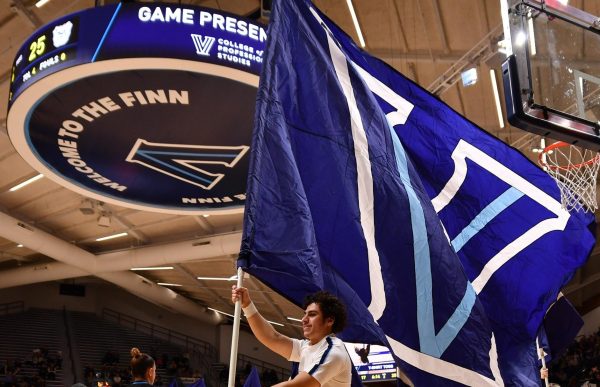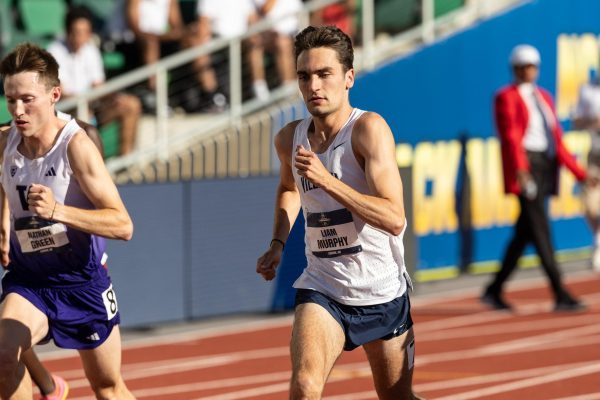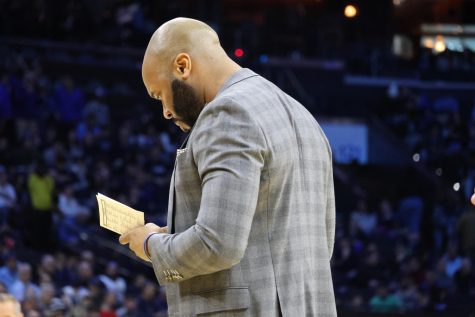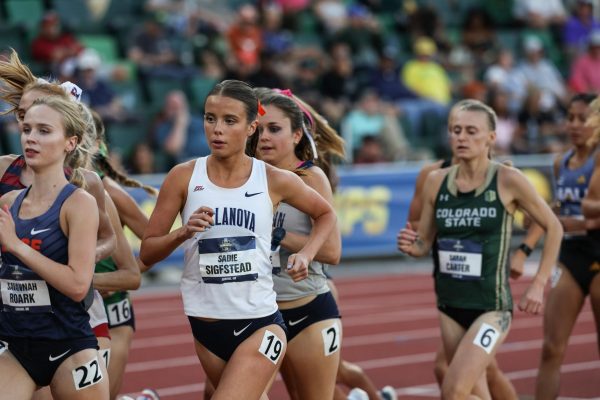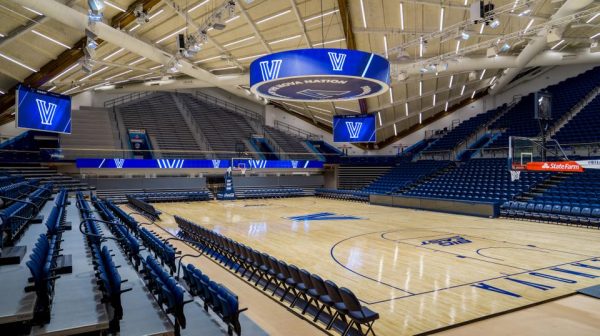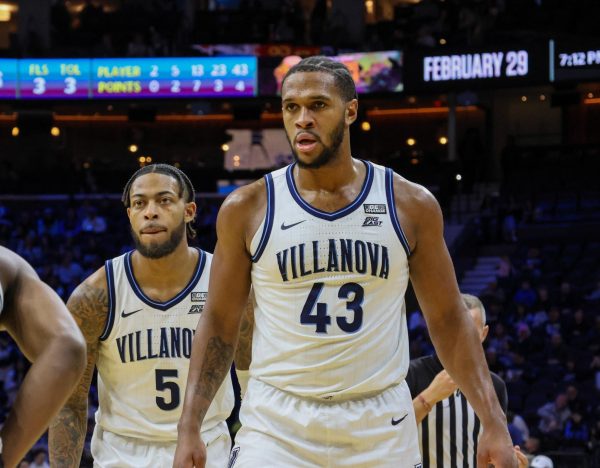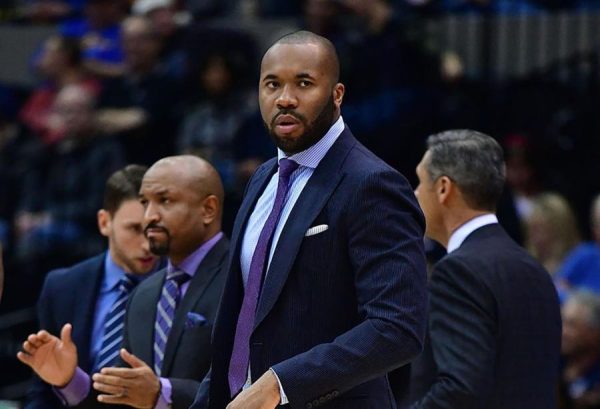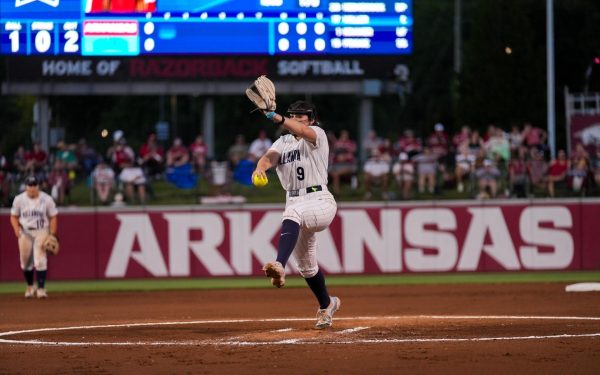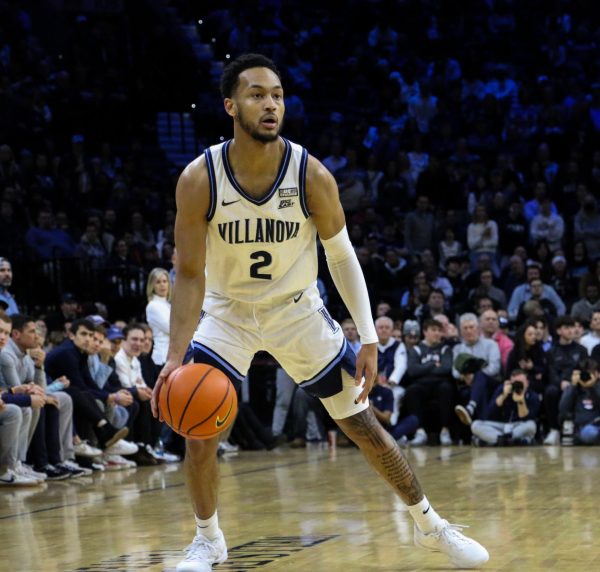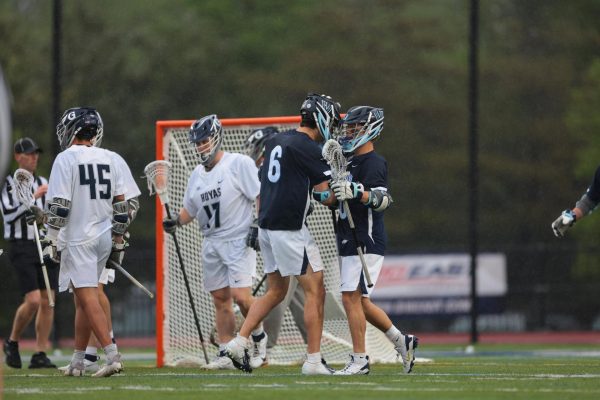Football players respond to call for bone marrow donation
November 3, 2015
“If you were called today to donate your bone marrow, would you do it?” Head Coach Andy Talley asked as his players walked past him one by one off the field after practice. The answers ranged from “Absolutely, Coach,” to “Of course, Coach,” but either way, the response was a resounding yes.
Spirits were high among the Villanova football team when junior Jake Prus and senior Jacob Gribb were called within two weeks of one another to donate their bone marrow in hopes of saving the lives of the blood cancer patients with whom they matched.
“You hope and pray that some of your players will be called,” Talley said. “It’s been five years since the last match, and all of a sudden we have two in one year? It’s quite shocking, really.”
The last marrow donation made by a Villanova football player was in 2009 when Matt Szczur, now an outfielder for the Chicago Cubs, donated to a 15-month-old Ukrainian girl battling leukemia. He met the healthy 4-year-old girl and her parents via Skype in 2012.
“It’s incredibly rewarding, because how many chances do you get to save a life?” Talley said. “That’s the most wonderful thing about it. It’s somebody’s son or daughter, mother, father, aunt, uncle, brother, sister and, lo and behold, two Villanova football players are giving up part of their college careers for someone they don’t even know. It’s a sacrifice, but who wouldn’t do it?”
Even though choosing to donate meant Prus and Gribb had to miss a few games, the reaction of the team was one of high respect, according to Talley.
“If you ask any of these guys, I think every one of them would do it in a heartbeat,” Talley said. “That’s the attitude on and off this field, because they know that this is what we do.”
Joining the bone marrow registry has become as much as a tradition as tapping the rock before each game, and every player gets tested the first opportunity they get.
“I wanted to be a match as soon as I got my cheek swabbed freshman year,” Prus said. “I think everyone for the most part wants to do it when they sign up.”
After playing in the team’s opener, Prus missed the following game for his donation. He returned to the field in the second half of the Delaware game after his backup was injured.
“I knew the guys behind me were going to do a great job with me gone, so it wasn’t too bad,” Prus said.
Gribb, on the other hand, lucked out. His donation process fell on a bye week, so he was able to suit back up for the game against William & Mary.
“At first when I got the call to donate, I thought they were kidding or something,” Gribb said. “It was originally supposed to happen in the spring semester, but later I got a call saying, ‘the situation has changed, we need you to donate as soon as possible.’”
Both players kept their coaches and teammates in the loop throughout the entire process and they were supportive no matter what, according to Gribb.
“The whole way through they asked me, ‘Are you sure you want to do this?’” Gribb said. “But the only answer was ‘absolutely.’ Once you get that call you really think long and hard that ‘wow, I can actually save a life.’”
Prus’ donation occurred just two weeks before, so he was able to coach Gribb through the process.
“We talked about it a lot, and I gave him as much advice as I could give him like how long it took and that he should definitely bring a computer so he could watch Netflix during it,” Prus said.
The procedures occurred at Hahnemann University Hospital in Philadelphia. The five days leading up to the donation, Prus and Gribb both received three injections a day, and on the day of the donation, had blood drawn from two needles for seven hours.
“It was a pretty cool experience just trying to save a life and to just give back like my family always taught me,” Gribb said while his teammates running behind him yelled out “Superhero!”
Even though they are only allowed to know the age and gender of the person they are helping, Prus and Gribb would have donated either way.
“I would have done it regardless of whoever it was,” Gribb said. “It’s a life no matter what.”
Talley’s inspiration for becoming involved in bone marrow registry promotion dates back to 1991 when he listened to an oncologist on the radio talk about how many more lives affected by blood cancer could be saved if they had just had more people on the donor list.
“I’m going, ‘What? This is America! We have tons of people, come on!’” Talley said. “And then I thought, ‘Well I have 90 players on my team, I can do this.’”
He started off small by recruiting a few more college teams to do the same.
“Every year we’d muster up a drive and more and more people got latched on to the idea,” Talley said.
Since then, over 60 college football teams host marrow drives every spring through Talley’s charitable foundation, Get in the Game and Save a Life, and his partnership with Be The Match, the national marrow donor program.
“It’s the power of football,” Talley said. “It’s the power of coaching and the power of the sport.”
Villanova’s conference, the Colonial Athletic Association, is the first in the nation to have all its members committed to running bone marrow registration drives.
The first annual, NBC nationally televised event called Be The Match Saturday took place over the weekend, featuring advertisements for joining the marrow registry during the commercial breaks of each game.
All 12 CAA teams are a united front on this issue and all hold marrow drives promoting the cause at each respective university.
“We’re all in this Get in the Game and Save a Life program together,” Talley said. “It’s what we do.”
Last spring, over 10,000 people were newly added to the bone registry, and this year’s goal is to register 20,000 people.
The bone marrow drive at Villanova takes place during Greek Week in the spring, and last year, Villanova’s campus alone tested 525 people, thanks to overwhelming participation from fraternities and sororities, according to Talley.
“Just get your cheek swabbed in the spring,” Gribb said. “This is for a great cause and you’ll never know when you’ll get the call.”


